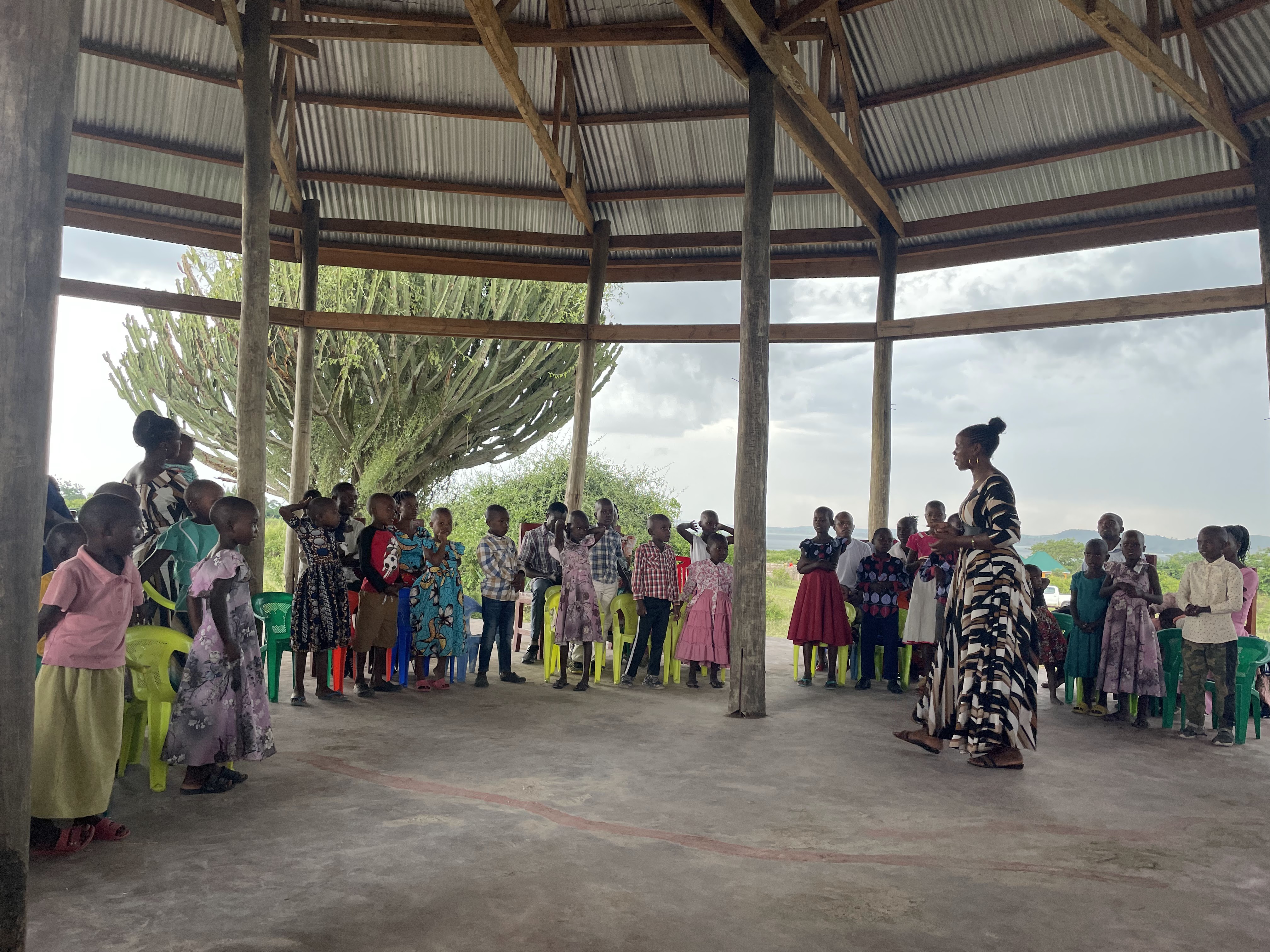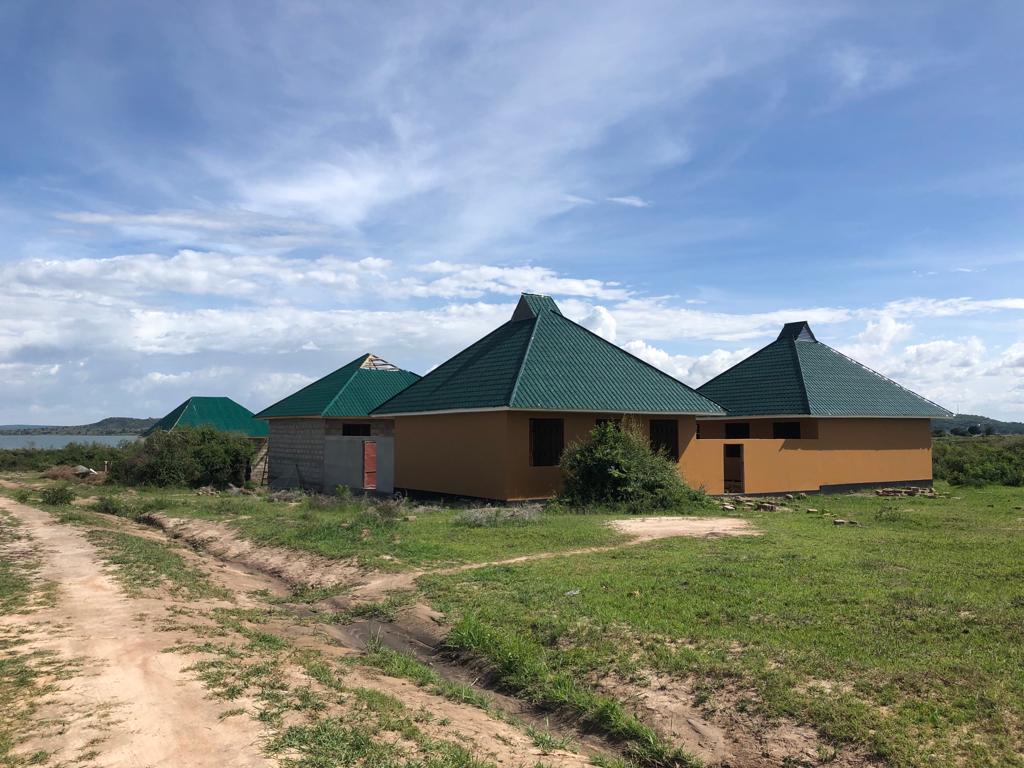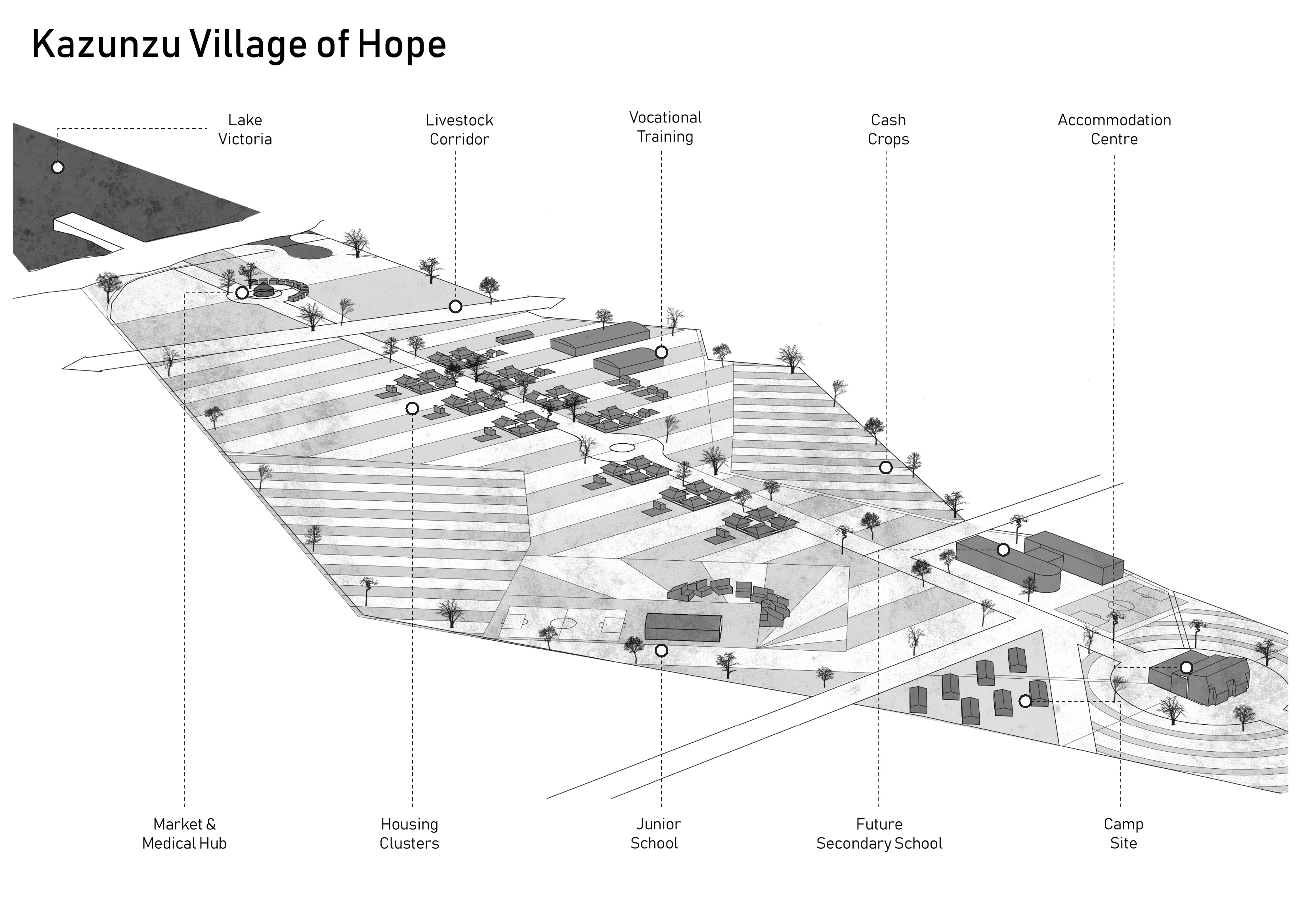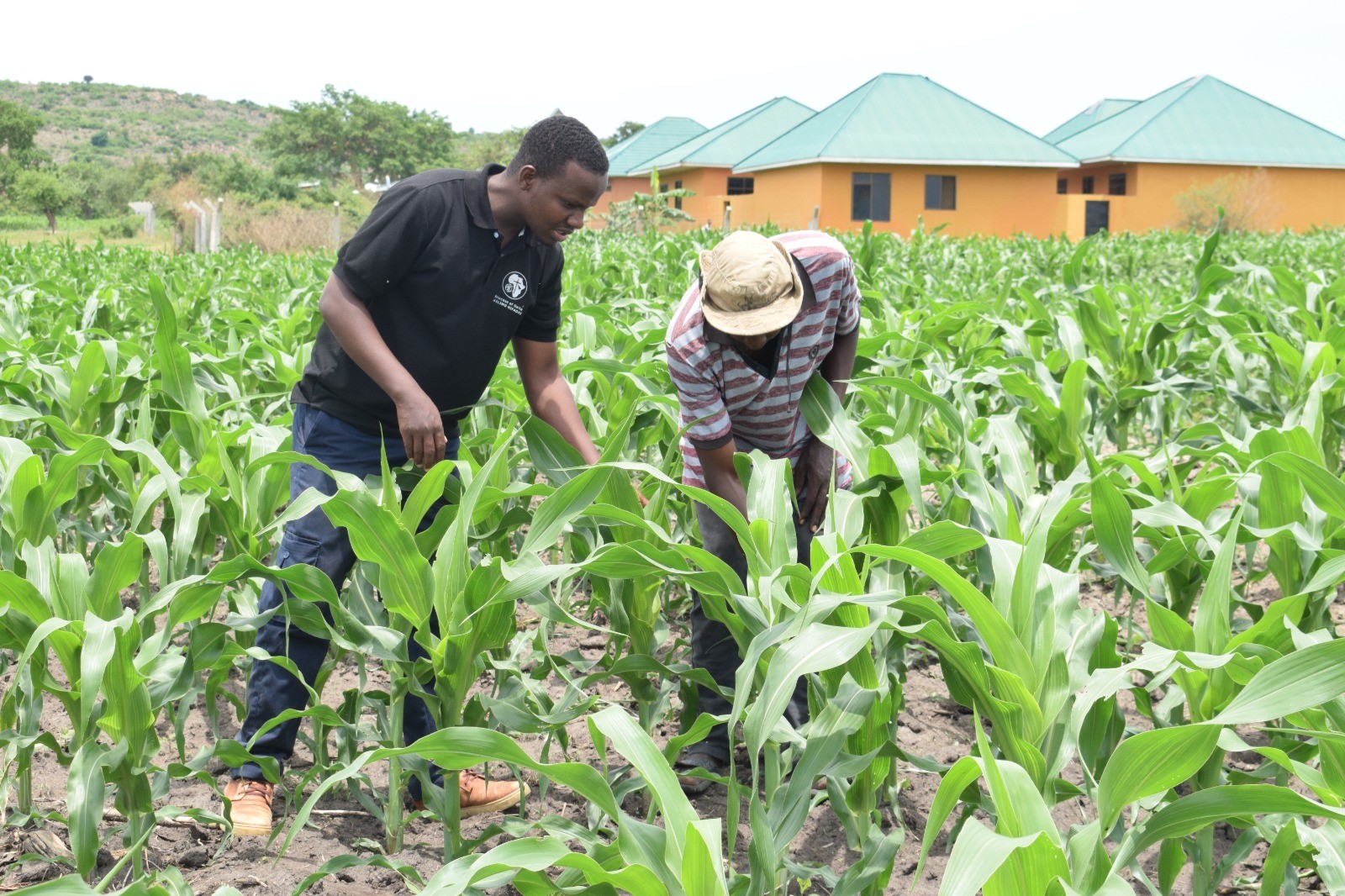Kazunzu
Kazunzu comes from the Zinza tribal language and means a promontory. It is an apt name for the piece of land that juts out into Lake Victoria, a cape around 20 km west of Mwanza, Tanzania that is in the process of becoming a self-sustainable ‘Village of Hope’ for around 40 families.
Those who have been aboard Jubilee Hope or visited the islands of Lake Victoria will be aware of how tough the living conditions are in this region. Community members deal with poor sanitation and lack of access to safe drinking water, while an estimated 20 to 30% of the islands’ population is infected with HIV/AIDS.
The area’s scenery and sunsets may be idyllic, but this is a harsh environment for raising children, finding food and clean water, and generating income.

The Idea
The Kazunzu project is an ambitious venture from Africa Inland Church Tanzania (AICT) that comes from a convergence of practical, real-world observations about the living conditions on Lake Victoria and the strategic intent of bringing together the building and medical programmes’ expertise to create a secure and stable environment for those in need.
The place-based approach that our partners at AICT are taking is championed by various socially progressive regional governments across the world. It enables AICT to plan for, and begin to construct, a village that places a large amount of value on community engagement and long-term sustainability practices.
The initial plans for Kazunzu included:
>> 40 family homes
>> A community hub, or ‘Boma’
>> A health hub
>> An eight-classroom school for up to 320 pupils
>> An innovative Vocational Training Centre
>> A community farm
>> Family gardens
>> A campsite.
After identifying a 53-acre site near Mwanza in 2018, AICT and Vine Trust have worked closely with the planning authorities and District Commissioner in Sengerema to develop the Kazunzu project proposal.
In February 2019, these plans were accepted and our in-country partners have been implementing them ever since.
Since construction began in 2019, the project team has completed:
>> Eight individual foster family homes, which house around 60 people, 39 of whom are orphans who are brought into existing family units so that they feel safe and secure with new siblings and parental figures.
>> The Boma, or community hub, which includes an open plan area, a stunning view of the lake, and several auxiliary buildings.
>> A set of four buildings making up the Kindergarten, staff housing, and a home for the Kazunzu Primary School’s headteacher.
>> An eight-classroom school for up to 320 primary school pupils (completed in 2023).
The homes themselves are being built in small clusters of three or four: each separate group will share a cottage garden which will provide families with ample room to grow crops and keep poultry in a shared and secure environment.
AICT has also been working to train Kazunzu families in how to grow and manage vital crops like maize, a staple of the local diet.
This initiative not only enables families to grow their own food in a sustainable way, but it also provides villages with valuable new vocational skills.
The construction of the village lends itself to generating a variety of potential income streams for residents, from craft-making, agriculture, and crucial vocational training to school fees and teaching opportunities. Hopefully, this model of internal income production will enable Kazunzu to become a fully self-sustainable community in the years to come.
Find out more about joining us at Kazunzu in the Building Expeditions section of our website.

The Plan
Africa Inland Church Tanzania (AICT) plans to build around 40 homes, a Vocational Training Centre, a Health Hub, a school and also a camp site.
The homes will be built in small clusters of four, with each cluster sharing a small cottage garden, providing space to grow some crops and keep some chickens. The homes themselves will typically each accommodate parents and up to six children, the majority of whom will be orphans.
Understanding how to run a small garden and learning a trade at the Vocational Training Centre will prepare those growing up at Kazunzu with the skills necessary to have a successful career.
.

Sustainability
Sustainability will be key to the success of such a programme and AICT hopes to create an array of income opportunities for the residents. The development of the Vocational Training Centre will teach useful skills to the residents, and some of the AICT team have been working with the families to provide training on management of crops, starting with maize which is a staple food in the community.
The project will soon expand to include other types of income activities such as cassava, sweet potatoes, and the planting of fruit trees.
